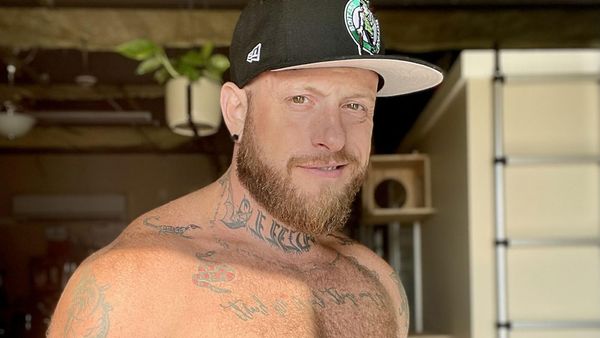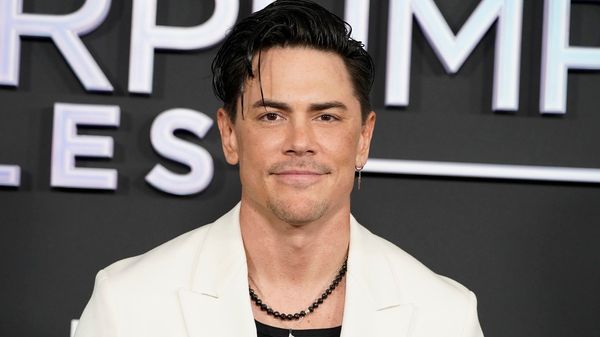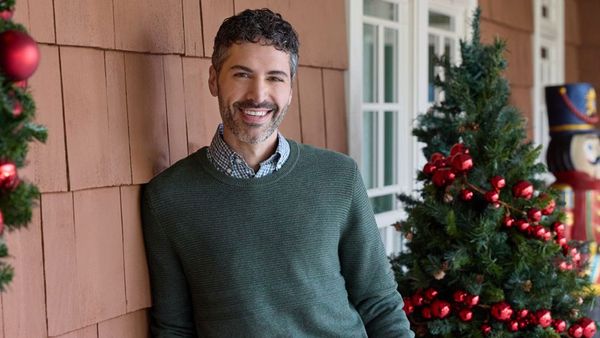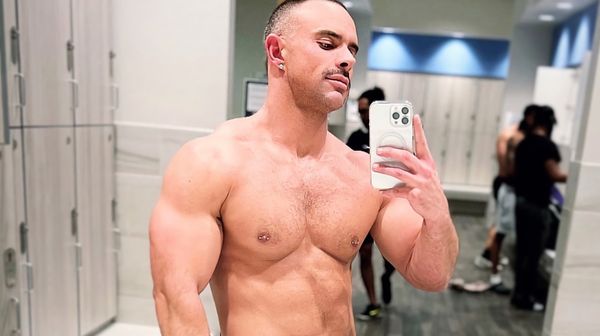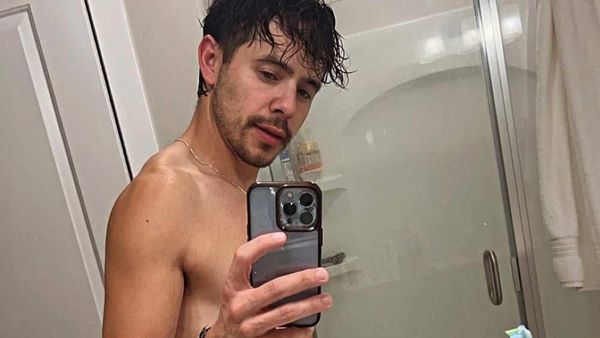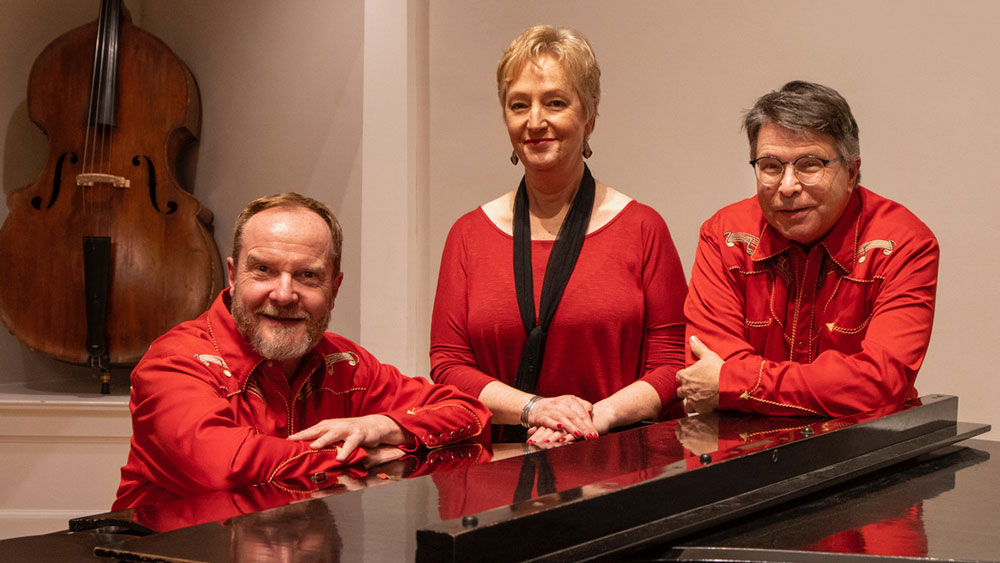
Nov 26
EDGE Interview: Ben & Brad & Cynthia Celebrate Rodgers & Hart & Hammerstein
John Amodeo READ TIME: 7 MIN.
"I felt like they've just always been there," muses cabaret singer Ben Sears about Great American Songbook, Broadway, and film composer Richard Rodgers and his two most famous lyricists, Lorenz Hart and Oscar Hammerstein II. Sears' husband and longtime musical partner Brad Conner echoes, "They were always there. That says something about their music." Sears recalls seeing a community chorus production of "Oklahoma" (Rodgers & Hammerstein) and his parents had some Broadway records they would play. He also would hear American standards sung by Dinah Shore, Bing Crosby, and Frank Sinatra on the radio stations played at home.
Conner, who grew up in rural West Virginia, where live musical theater was rare, noted "My first memory of Rodgers & Hammerstein was 'The Sound of Music' and "The King and I" films, which I would watch on TV. There wasn't much exposure to live musical theater. There was a light opera guild in Charleston, West Virginia where I heard some of Rodgers & Hammerstein's music. And for the Rodgers & Hart songs, I would hear them on TV variety shows."
Sears and Conner have not only been a cabaret performing duo since 1989, but they are also considered preeminent scholars on the history of the Great American Songbook. Any conversation with them, however casual, and no matter the subject, will likely glide into a discussion or debate as to who wrote what when, what the original title was, when it changed, and how to correctly pronounce it.
Both have researched, written, edited works, and lectured extensively on the Great American Songbook and have performed its vast repertoire around the country and internationally. They have released thirteen CDs of songs by not only Rodgers and Hart and Hammerstein, but also by Irving Berlin, George & Ira Gershwin, Jerome Kern, and E. Y. Harburg. The Boston Globe has called them "Boston's favorite song duo."
More recently, they have teamed with versatile soprano Cynthia Mork, who has toured with Sears and Conner on various shows including the show "Rodgers & Hart & Hammerstein," performed first in Bedford, MA, then Jefferson, NH, then on a further extended tour. Sears, Conner, and Mork will reprise "Rodgers & Hart & Hammerstein on Saturday, December 7, at Club Café's Napoleon Room.
Whenever the subject of the Great American Songbook or the Golden Age of Broadway comes up, one of the first songwriting duos that come to mind are either Rodgers & Hammerstein or Rodgers & Hart. Rodgers' work with Hart spanned the 1920s and '30s, churning out hit musicals like "Pal Joey," "A Connecticut Yankee in King Arthur's Court," "On Your Toes," "The Boys from Syracuse," and "Babes in Arms."
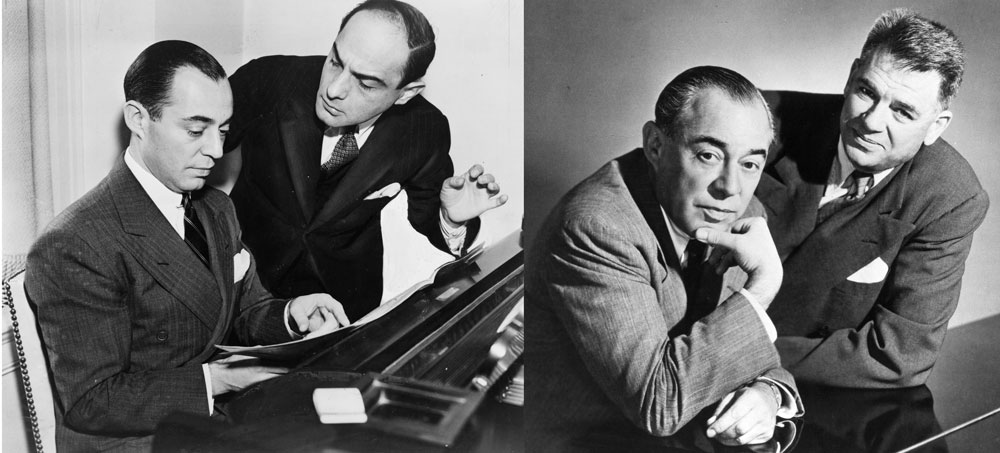
Source: Wikipedia
Later, in the 1940s and '50s, Rodgers worked with Hammerstein, and together they wrote some of the most popular and iconic works in musical theatre history, beginning with the landmark show "Oklahoma" in 1943, considered to be the first fully integrated book musical, where the songs and dances were fully incorporated into the plot and helped tell the story. They continued with "Carousel" (1945), "South Pacific" (1949), "The King and I (1951), and "The Sound of Music (1959). It is no wonder that Sears and Conner would want to explore, dissect, and perform such a rich canon of material.
"Hart didn't write with many other composers besides Rodgers," notes Conner, "though he did write a song with Arthur Schwartz (of Dietz & Schwartz fame). But when Dietz came along, Schwartz dropped the Hart lyrics and the song became 'I Guess I'll Have to Change My Plans.' The one big thing that Hart did separately from Rodgers was the film 'The Merry Widow,' which he wrote with Franz Lehár, and which starred Jeanette MacDonald and Maurice Chevalier. Hart wrote English lyrics to the Lehár operetta, translating the German lyrics into English." Sears, Conner, and Mork will feature a song from "The Merry Widow" in their show. Conner then switched to Hammerstein saying, "Hammerstein wrote more songs with Jerome Kern than he did with Rodgers, including 'All the Things You Are,'" which the trio will also feature in their show.
About that last song, Sears remarks, "'The dearest things I know are what you are' by Hammerstein is one of the most beautiful lyrics ever written." Sears then adds, "Hart wrote 'Lock the doors and call me yours,' one of the most brilliant lyrics (from 'You Took Advantage of Me'). You can only imagine all the different things that would happen behind those doors." Sears and Mork will duet on "You Took Advantage of Me," as well as on duets from "The Boys from Syracuse" and "Oklahoma."
Sears and Conner together and individually revel in getting deep into their research of the Great American Songbook. To listen to them speak about it is the equivalent of taking a college-level course in the history of American songwriting. In every show of theirs, one can count on there being at least one moment where one will learn something new about a song, its writer, or the show/film it is from.
For example, Sears shares this nugget, "I do the song 'Isn't It Romantic,' [a classic Rodgers & Hart standard from the 1932 film 'Love Me Tonight']. When the song was published, Hart wrote another set of lyrics that weren't tied to the movie, and those are the commonly sung lyrics. But we've gone back to the lyrics from the movie, and we contrast it with 'Hello, Young Lovers.' The film lyrics for 'Isn't It Romantic" aren't sung outside the film mostly because they are all about the singer. It's a very selfish song, but 'Hello, Young Lovers' is the most unselfish song, which makes for an interesting pairing. We have a well-thumbed book of the complete lyrics of Rodgers & Hart as well as several other composers, which is how we got the alternate film lyric to 'Isn't It Romantic.'"
John Amodeo is a free lance writer living in the Boston streetcar suburb of Dorchester with his husband of 23 years. He has covered cabaret for Bay Windows and Theatermania.com, and is the Boston correspondent for Cabaret Scenes Magazine.

